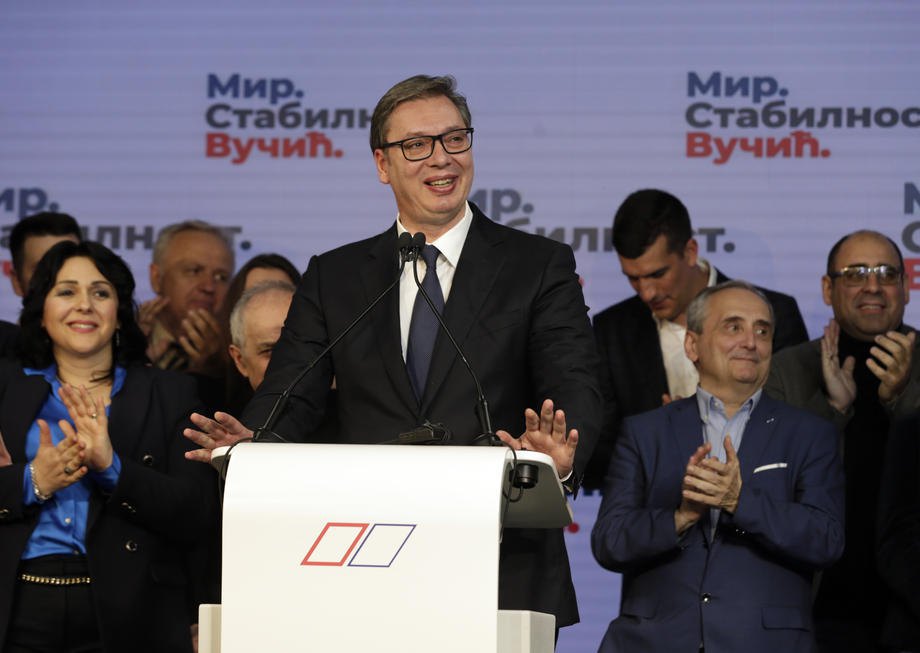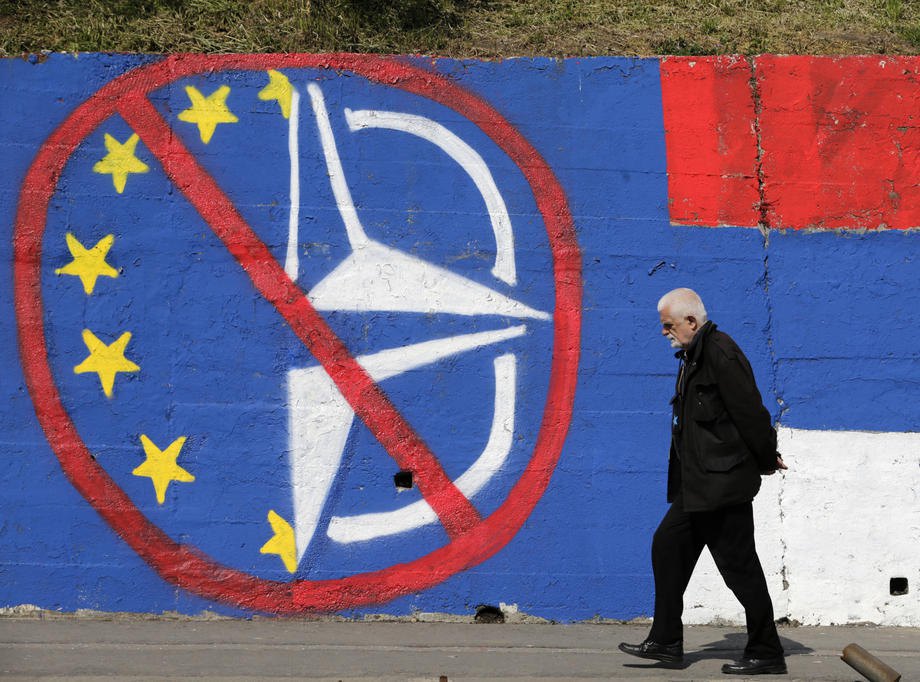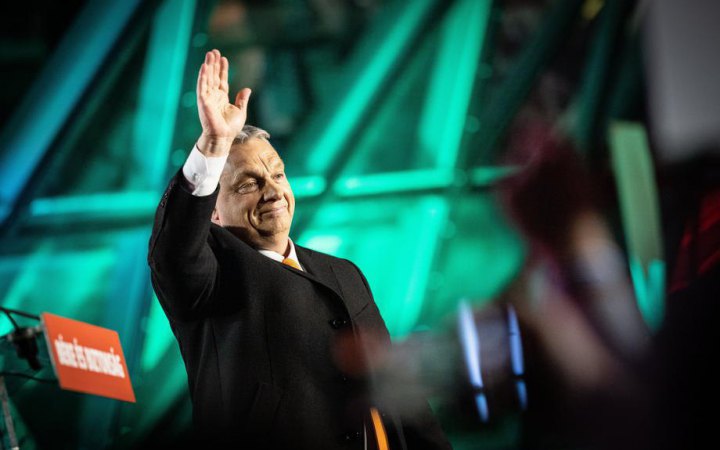Photo by: EPA/UPG
Hungarian Prime Minister Viktor Orban congratulates his votaries during the meeting of the authoritative party Fidesz-KDNP, Budapest, April 3, 2022.
To a reader far from Hungarian or Serbian political realities, this success of Orban and Vučić may seem strange. How in a month after the beginning of Russia's war against Ukraine, on the day when the world found out about the atrocities in Bucha, politicians who are proud of their close communication with Volodymyr Putin can win and do everything to soften the effect of the pressure of the civilized world on Russia. Within his limits, it is obvious that Orban, who controls the government of the EU member state, agrees with all sanctions if they are supported by the leading states of the European Union, and Vučić has much more opportunities to maneuver.
But this can be asked only by someone who is not particularly interested in Hungarian or Serbian politics and does not imagine the full extent of manipulative capability. Orban really lost his grip, and with his grip, he lost his authority in the great cities of the country. And against this background, the opposition could rely, if not on victory, at least on a situation where Orban could no longer rule the country as his own estate, and openly ignore European political and legal standards.
But the Hungarian Prime Minister was helped, paradoxically, by war. And the question here is not so much in support of Russia as in the fear of society that the war will come to Hungary. Orban was talented at exploiting this fear. The mass media close to the government daily explained to Hungarians that FIDESZ is a party of peace, and Orban is a dove of peace. That he is alone who does not allow to drag Hungary into the war, but if the opposition comes to power, it will do so. And, of course, gas. If Hungary refuses Russian gas - and I will remind you that the day before, Budapest signed the "very same agreement" with Gazprom, which allowed Hungary to get privileged gas prices in exchange for refusing to transport gas with the Gas Transmission System Operator of Ukraine, the Hungarian economy will fall and the standard of living of the population will definitely fall. And the opposition...

Photo by: EPA/UPG
Serbian President Aleksandar Vucic announces early election results, Belgrade, Serbia, 3 April 2022.
The issue of gas, by the way, is exactly the same what unites Orban and Vučić election campaigns. Vučić was also proud of his privileged energy relations with the Kremlin - the price of gas for Serbia has always dropped dramatically when the Serbian president visited Putin. If Orban was building his election campaign as the leader of the party of peace, then Vučić, who had recently demonstrated constructiveness in negotiations with the Kosovo leadership, this time acted as the president of the war, who is ready at any moment to respond to “Pryshtyna's provocations" against the Serbian population. Given the popularity in Serbian society of Putin's myth - the country's leadership is doing everything possible to play along with the very common Kremlin propaganda in Serbia - the image of a tough president who can act "like Putin" helped Vučić win in the first round - for the first time in the political history of the country. His own Progressive Party, however, did not receive a majority in the Assembly, but will be able to continue to govern in coalition with even more pro-Russian socialists - the heirs of the disgusting "butcher" Slobodan Milošević, this bloody “Putin” of the Balkans.
The question, however, is, can two autocrats, very conventionally elected democratically - because they control both mainstream media and public life - continue to be Putin's agents in Europe and contribute to the decomposition of democracy from within? That's what I have big doubts about. Orban and Vučić are certified trimmers who are ready to betray anyone. And as Russia's economic influence inevitably weakens, they will betray Putin. Orban will start doing it today. He has already won the election, and now he needs to maintain economic standards against the background of the inevitable crisis during the war. And without help from the EU, he simply can not do it. Note that in the first days of the war, when it was not clear yet that the events will help Orban to look like the main peacemaker of our time, he, and his pro-Russian Minister of Foreign Affairs, Peter Siyyarto, recently awarded by Putin with the Order of Friendship, pretended to be just the main hawks and support the most severe sanctions against Moscow. So if I were the Russian governor, I would not be tempted.

Photo by: EPA/UPG
Mural against the EU and NATO in central Belgrade, Serbia, April 4, 2022
Yes, and Vučić, who constantly maneuvers between friendship with Putin and Serbia's desire to join the EU, is not a very reliable partner. But his position will be related to the EU's willingness to pressure Belgrade and force Serbia to abandon its pro-Russian sympathies.
In any case, it is worth asking: why the European Union is ready to tolerate staying in its composition of countries whose value systems contradict the European one or to negotiate with countries whose residents run the streets with portraits of Serbian and Russian "butchers," refuse to recognize their own responsibility for war crimes and approve war crimes of Russians - however, they are not sure about the feasibility of the European perspective of Ukraine, whose citizens defend this prospect on the battlefield.
The results of elections in Hungary and Serbia are a good opportunity to think about it.









